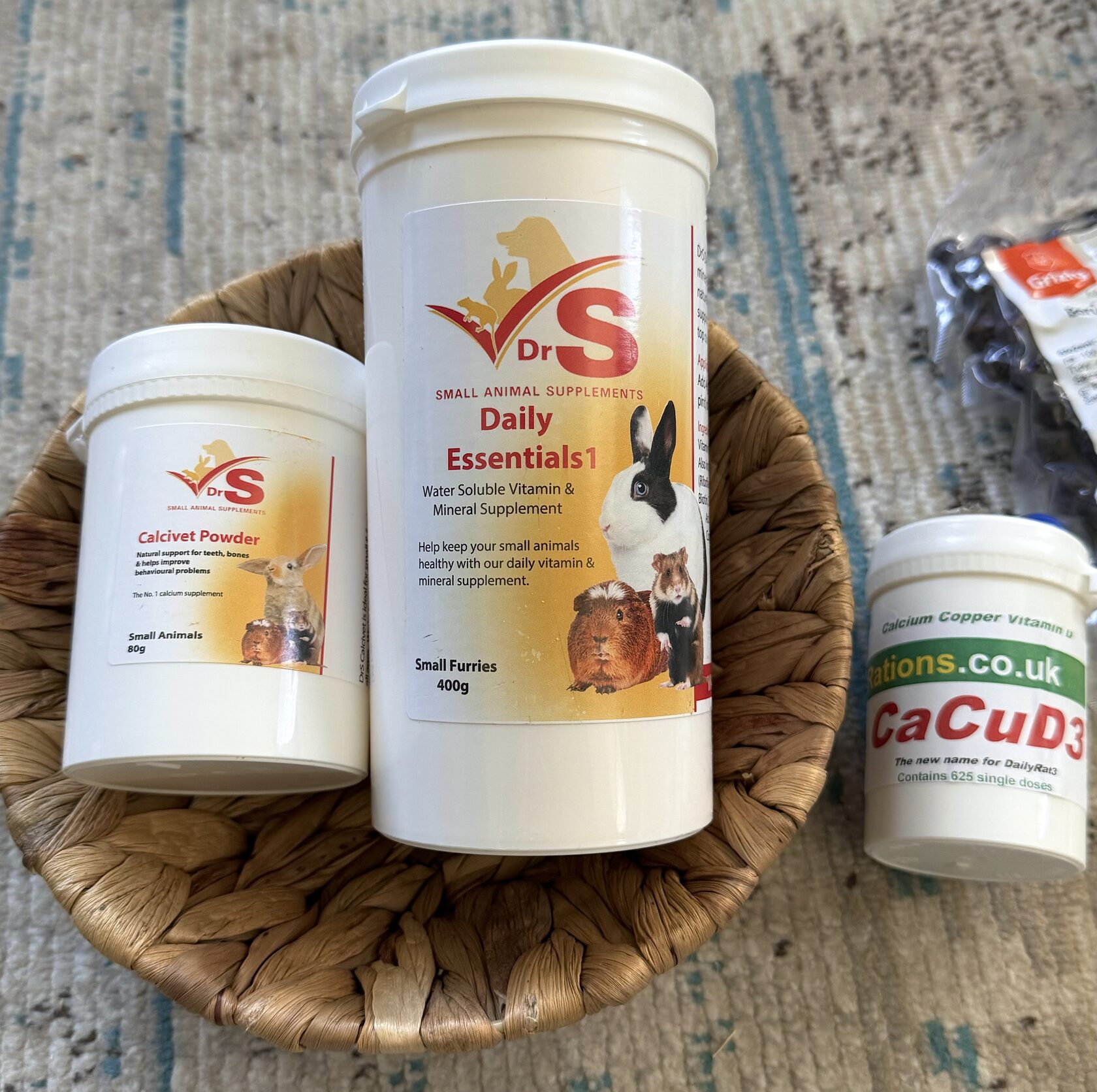Rats are omnivores, just like us. They benefit from a varied diet, including grains, vegetables, herbs, insects, nuts, seeds, berries, fungi and some fruit.

There always is an option to feed them a pellets, uniform pieces of food, that are nutritionally adequate and take away the opportunity to pick and choose what to eat. The highest quality food of this type is considered to be Oxbow. I’m not a fan of this approach for two reasons:
- it takes away the joy of trying different flavors and experiencing different textures;
- finding high-quality block is not easy if Oxbow is not available.
I believe, buying or creating a rat mix yourself and supplementing with fresh food is the most beneficial for most rats (if a rat is extremely picky, then different approach may be in order).
High-quality mixes in Czech Republic are available on rodentia.cz.

I will not post the ingredient lists here as I believe you need to read the book yourself. Nutrition is fun, but it’s serious too, we need to know what we’re doing before starting to make our own mix.
I make my mix using mainly ancient grains and those low in phosphorus, like sorghum, millet, red/wild rice, barley and I add flaked quinoa and buckwheat (which are seeds, not grains). But I do feed mixes from Rodentia as well, which have other grains. One of my favorites is called Gurman and it contains some wheat.
My rats’ favorite greens/veggies/herbs to feed the girls regularly:
- kale
- pak choi
- broccoli
- parsley
- basil
- carrots
The girls also really like mint. They get mushrooms as a part of their wet food a couple of times per week, I usually add some seeds, like sesame, pumpkin and hemp as well as a seaweed mix.
I don’t normally give them dairy, the exception is when they need medication they don’t like. Then, they get Greek yoghurt with additions like tomatoes or berries, depending on a rat’s preference.
Sometimes they also get malt paste as a treat. Egg biscuits are a hit as well, but we save it for special occasions (like a vet visit), cause they are high in sugar.
Supplements
While I believe my rats’s diet is varied and rich in nutrients, I can’t be 100% sure they get everything they need, so I use supplements recommended by the rat keepers I trust. These are very popular in the UK, but are not sold in CZ, so I get them with the people who travel to the UK regularly.

Herbs
The girls occasionally get a bowl with a mix of herbs in the cage. I use rat-friendly herbs like plantain, dandelion, marigold, dandelion, elderflower, lemon balm, St. John’s wort, milk thistle, etc. Herbs are high in fiber, so attention to poops is needed. Too much fiber can lead to diarrhea or in case the rats don’t drink enough – to constipation, which is dangerous and requires veterinary assistance.

Water
Hydration is very important for rat health. I put at least 2 drinking bottles and a water bowl into the cage (double Critter Nation) to make sure the rats get reminded to drink while they forage. Adding DrS water-soluble vitamins makes them like their water even more. I wash the bottles and bowls and change the water every day (sometimes, twice in the bowls, cause they love to wash their little paws there) and clean the bottles in the dish washer once a week (plus the daily cleanings with a brush).
Changing water less often than daily can lead to bacterial biofilm accumulation, which is unsafe for rats.
Changing water less often than daily can lead to bacterial biofilm accumulation, which is unsafe for rats.